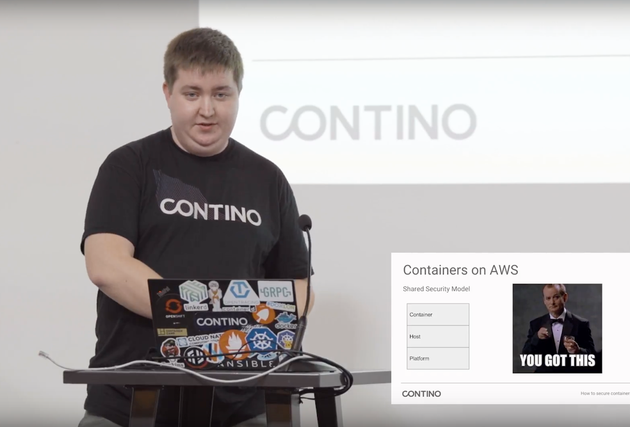Make Your Cloud Trading Platform as Effective as Colo Using Equinix and AWS Direct Connect
As an investment bank, or an organization that runs a trading app, you make transactions in real time. This means your applications and infrastructure need to support extremely low-latency operations and need to be able to process large quantities of data in real time.
To meet this requirement, many financial organizations have historically resorted to using on-premises hardware in their data centres. That involves a lot of maintenance for IT, and it distracts companies from what they really want to do—execute financial transactions in real time.
There is a better way. Using AWS Direct Connect in conjunction with Equinix, financial organizations can execute trades as quickly as they would using colocation (or colo), without the maintenance burden and distraction.
You can use the cloud as if it were on-premises – getting the best of both worlds for your trading platform.
Colocation with Equinix
Colo is the idea of hiring data centre maintenance services from a vendor that services not just your organization, but other organizations that are colocated in the same data centre. You buy the servers, computing, and storage hardware, and the colocation vendor takes care of the CapEx associated with running a data centre.
Equinix is one of the largest colocation providers in the world. With decades of experience, and numerous clients, they are the go-to organization when it comes to colo. Most investment banks and trading companies use Equinix to manage the hardware that powers their applications. This was working fine for a while. However, with the global shift to the cloud, organizations are considering new ways to power their trading applications that don’t sacrifice on low latency requirements, security, and availability, and can still provide a greater competitive edge with ease of management, cost-efficiency, and scalability. That’s the promise of integrating the cloud with a colo service.
Traditionally, conventional wisdom has held that cloud services can’t compare with on-premises hardware or colocated infrastructure in terms of performance. Organizations have assumed that only colo can provide the necessary low latency required for trading apps. Part of the reason for this is that organizations have invested in on-premises infrastructure for too long, and don’t want to throw away all that investment.
Today, most, if not all, financial trading apps run on on-premises and colocated infrastructure. Every industry and organization has its share of fears and concerns when transitioning to the cloud, but it’s an inevitable shift that is, in the long term, unavoidable. The world of investment banking and financial trading is no different; the trend towards the cloud may be delayed, but the business case is undeniable and the early adopters are already starting to see the benefits in terms of competitive advantage.
AWS Direct Connect
However, cloud vendors as well as colo vendors are taking steps to integrate their solutions and provide a seamless transition for customers who are looking to move from pure hardware to the cloud, or a blend of the two. One prime example is the integration between the two leading vendors in their space—AWS and Equinix.
AWS Direct Connect is a service that creates a dedicated network between AWS’ cloud services and the data centre managed by you or your colocation vendor. Recently, Equinix became an APN Advanced Technology Partner with AWS, and is the most mature option for organizations looking to get the best of both worlds—colo and the cloud.
The Myth of Latency
The biggest advantage of a solution like this is that you can use cloud services as if they were on-premises. The key concern of low latency is dealt with as the network that transmits all data for transactions is a dedicated, high-speed network. This means latency is as low as you’d get in the most well-managed data centre, and isn’t affected by the quirks of the public Internet. With the high throughputs you receive, you can boldly run trading apps on this infrastructure at extremely low latency.
More Flexibility
The second advantage is that you can switch between the cloud and on-premises for various workloads and data storage. You need not be tied to just one option, and you can have the flexibility to architect your infrastructure across a broader range of options. You can leverage storage in your colocation center, or use AWS S3 for cheap bloc storage in the cloud. And because of your dedicated network, the transfer speeds for this data will be the same either way.
Cost-effectiveness
Third, you can take advantage of cloud economics as you scale. Renting a cloud service is much cheaper than setting up the physical hardware for the same service yourself. This is because you pay by the hour, and can upgrade or downgrade your available resources according to your needs.
High Availability Without High Maintenance
An integrated solution would give you the advantage of high availability as a cloud service like AWS would be responsible for uptime of the servers and services used in the cloud. With on-premises hardware, errors can take hours to rectify, and they can be costly, but with the cloud, the vendor’s SLA includes a guaranteed uptime of five 9s. This is a logical extension of the colocation concept, where not just the CapEx, but even the hardware is managed by the vendor, leaving you to focus on your trading application, and not the infrastructure that runs it.
One-up the Competition
Finally, a dual setup like this will give you a crucial edge over the competition. In this environment, it’s the organizations that take the plunge early that stand to gain the most. By leveraging both the cloud and colocation to power your trading apps, you are taking the lead in adopting a newer generation of technologies.
Conclusion
Services such as AWS Direct Connect can add yet another string to the bow of companies that take cloud-based innovation seriously. With demanding customers making themselves known, and disruptive new market entrants snapping at the heels of the incumbents, financial services organizations are feeling pressure on all fronts. Cloud-based innovation is a compelling way out of this challenging situation. By using an integration with an existing vendor like Equinix, and a reputed leader like AWS, you can make use of the flexibility and scalability of the cloud, whilst maintaining cutting-edge performance.





